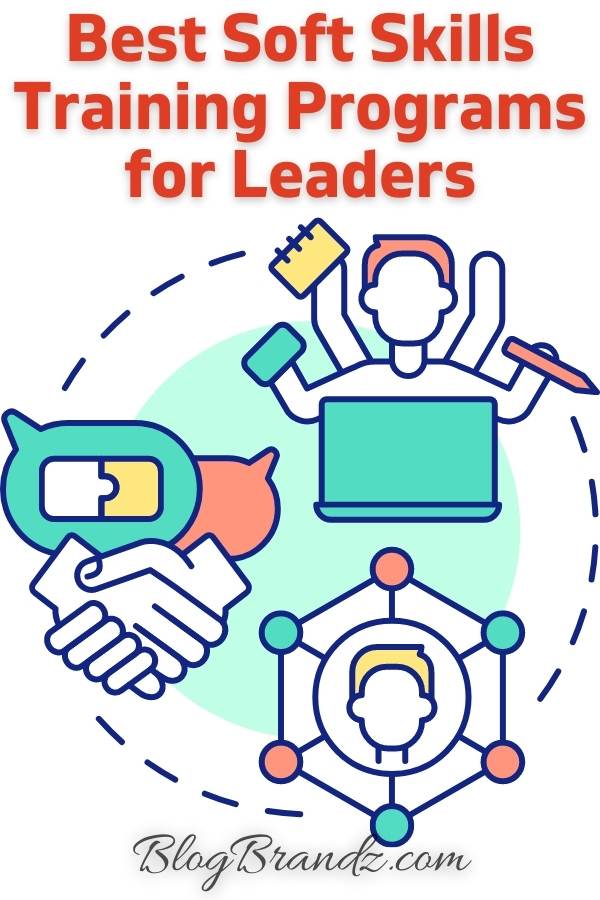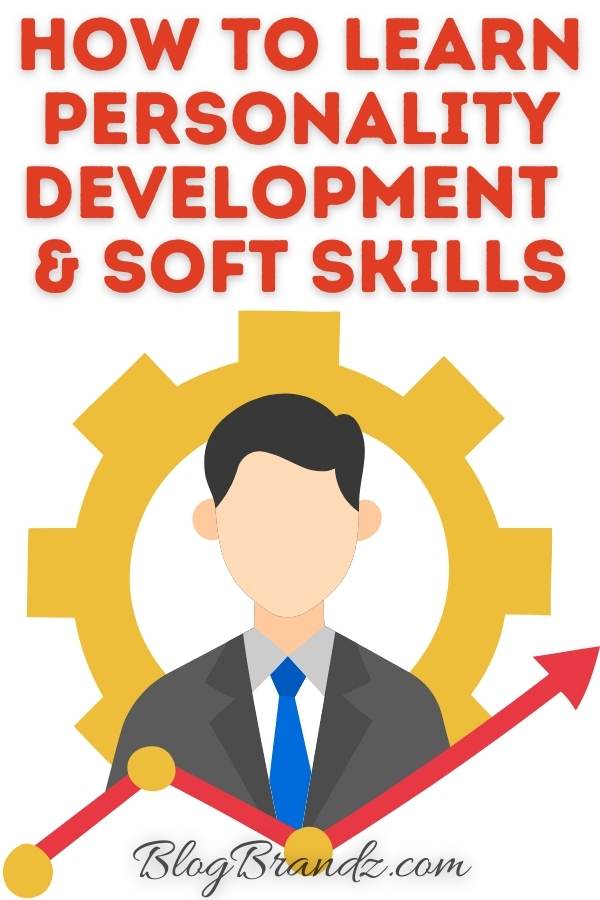Contents
How to Learn Soft Skills and Personality Development
Learn soft skills and personality development; develop your communication competency, interpersonal, and leadership skills with soft skills training programs.
Soft skills are some of the World Economic Forum’s top 10 work skills of tomorrow, and 94% of business leaders now expect employees to pick up new skills on the job.
These soft skill development courses will help you get soft skill training and learn workplace communication, leadership, and interpersonal relationship skills to help you succeed in the future workplace.
What are soft skills?
Soft skills are those personal traits and social skills that enable us to communicate and interact effectively with others in the workplace.
They’re sometimes called “people skills” or “interpersonal skills.” Examples of soft skills include communication, empathy, and flexibility.
Being easy to get along with and having good leadership skills are two of the most important soft skills in the workplace.
While hard skills are important for getting the job done, employers also value soft skills. That’s because these traits can make it easier to interact with co-workers, customers, and clients.
Good workplace communication skills can help you build strong relationships at work; and empathy can make it easier to understand and relate to others, which can be helpful when you’re trying to resolve conflicts.
Developing soft skills can be tricky. Unlike hard skills, which you can learn through formal training or practice, soft skills are often more difficult to teach because they’re usually based on personality traits or emotional intelligence, which can be harder to change.
But there are ways to develop soft skills. For example, you can attend a communication skills workshop or class focusing on building specific social skills at an online skill development center.
However, learning other soft skills and personality development aspects such as verbal and non-verbal communication competency skills is just as important as written communication.
Soft skills are important because they help you interact with others. Good communication in an organization, teamwork and problem-solving skills, and assertiveness training for leaders can make it easier to work with others and get things done.
Soft skills vs. personality traits
There’s a big difference between personality traits and soft skills.
Personality traits are traits like introversion or extraversion, while soft skills help you interact easily with other people, or be flexible in the workplace.
While personality traits can be helpful in some situations, they are not as important as soft skills in the workplace.
For example, someone who is shy might have a hard time interacting with co-workers, but if they have good listening and diplomacy skills, they’ll be able to get along just fine.
What do soft skills training entail?
Soft skills training refers to teaching individuals how to interact with others in a way that is respectful, effective, and professional.
This type of training often focuses on communication and active listening skills, as well as other interpersonal skills. When you learn soft skills, you can become a better communicator and a more effective team member.
One of the most important ways to improve soft skills is to listen actively. This means paying attention to what the other person is saying, and not just waiting for your turn to speak.
It also involves trying to understand where the other person is coming from, and being open to hearing their point of view, even if you don’t agree with it.
Other important soft skills include communication, empathy, and teamwork. You can take the communication skills and personality development courses below to improve your soft skills.
Valuable soft skills for employees
There are a number of valuable soft skills for employees that can make them more effective in the workplace. Communication and interpersonal skills are two of the most important.
Good communication skills can help employees better understand instructions and communicate with co-workers and customers.
Interpersonal relationship skills and negotiation skills in business communication can help leaders build positive relationships with co-workers and customers, and resolve conflicts.
Many skill development institutes offer training to help you learn good leadership skills that can help you rise in the workplace to lead and manage teams and climb the corporate ladder.
Develop your communication competency with communication skills courses
Develop your communication competency and learn soft skills for communicating with diplomacy and tact with these business communication skill courses.
- 13 high-stakes communication skills for business success
- How to improve your active listening skills as a coach and trainer
- How to write clearly and concisely with business writing courses
- How to overcome speech anxiety & learn the art of public speaking
- Free public speaking courses with the best public speaking coaches
- Powerful, confident body language for businesswomen
- Assertive communication skills Masterclass (Udemy)
- Chris Voss MasterClass on the art of negotiation
- Learn the art of Nonviolent Communication (NVC)
- Learn the training skills of a facilitator with coaching training courses
- Robin Roberts MasterClass on effective and authentic communication
- George Stephanopoulos MasterClass on purposeful communication
Learn interpersonal relationship skills with top relationship experts
Interpersonal relationship skills can make or break your career prospects. People with excellent interpersonal skills have better leadership prospects and are more likely to succeed in their careers and businesses.
- Free emotional intelligence webinar with Daniel Goleman
- Relational Intelligence MasterClass with Esther Perel
- MasterClass on the power of empathy
- How to set boundaries in relationships
- How to unlearn toxic behavior in the workplace
- How to spot dark tetrad personality traits in the workplace
- How to build good relationships as a success-driven entrepreneur
- How to Network: Leading Yourself to Lead Others from the University of Michigan
Develop leadership skills with the best leadership MasterClasses
These soft skills training courses include leadership communication skills courses to help you learn the skills you need to inspire and lead others in the workplace.
- What are the key leadership skills to develop in future leaders?
- The remote workplace guide to managing remote teams
- Best business MasterClasses to learn entrepreneur skills
- Richard Branson MasterClass on disruptive entrepreneurship
- Bob Iger MasterClass on business strategy & leadership
- Howard Schultz MasterClass on business leadership
- President Bill Clinton’s MasterClass on inclusive leadership
- Doris Kearns Goodwin’s Presidential history & leadership MasterClass
- Geno Auriemma MasterClass on leading winning teams
- Anna Wintour MasterClass on creativity & leadership
Learn future workplace skills with life skills training
Future workplace skills such as self-management, emotional intelligence, active learning, resilience, flexibility, critical thinking, and problem-solving top the list of skills employers believe will grow in prominence in the next five years.
- Free class on the 7 pillars of true life transformation with Jack Canfield
- Free class on a proven process for getting unstuck & creating breakthroughs
- Free guide for overcoming negative thoughts and feelings
- Free class on how to create an extraordinary life by setting big goals
- How stoicism and stoic philosophy can build resilience
- 8 modern-day Buddhist practices to navigate workplace challenges
- Learn good life habits to rewire your brain for positivity and success
- Learn resilience at work to control your emotions & stay calm under pressure
- Become a successful person with the success habits of successful people
- Learn effective self-regulation strategies & tools to deal with anxiety
- Learn how to develop emotional intelligence & overcome negative emotions
- Learn how to reclaim your personal power & live your life to the fullest
- Learn mental strength in this Robin Arzón MasterClass
- Learn critical thinking in this Cornel West MasterClass
- Learn the power of resilience in Hillary Clinton’s MasterClass
- Learn the art of sales & persuasion in Daniel Pink’s MasterClass
- Learn advertising creativity in Jeff Goodby & Rich Silverstein’s MasterClass
- Learn personal branding in Kris Jenner’s MasterClass

Learn self-care & peak performance for leaders
Self-care is important for peak performance, especially in leaders, as it allows us to maintain a high level of physical and mental well-being. We can perform at our best when we’re physically and mentally healthy.
Learning self-care and stress tolerance strategies, like mindfulness, also helps us prevent burnout and manage stress, which can lead to improved focus and concentration.
- Download Mary Morrissey’s Best Day Guidebook
- Therapies for healing trauma: Recovering from childhood trauma
- Best emotional self-care tips for writers & creatives
- Jon Kabat-Zinn MasterClass on mindfulness & meditation
- How to improve brain power & keep your mind healthy
- 21 famous neurodivergent people in history & today
- How to transmute sexual energy into creative energy













